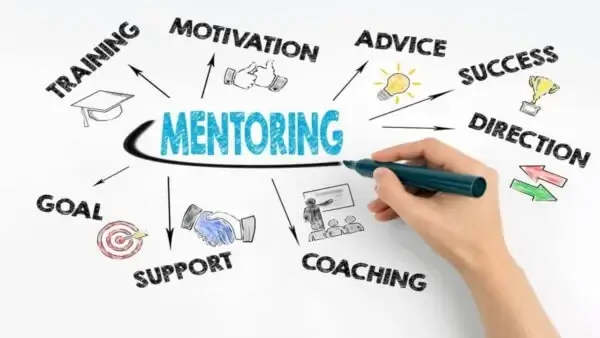Mentoring vs. Coaching: Which One Do You Really Need?
 Mentoring vs Coaching both exist for the same purpose: helping others grow, develop and reach their full potential. It is important to seek personal development for yourself and your career to fully achieve a sense of fulfillment. I wanted to pursue a mentoring career even wanting to enroll to get my coaching certificate but I didn’t know the difference since it is sometimes have been used interchangeably.
Mentoring vs Coaching both exist for the same purpose: helping others grow, develop and reach their full potential. It is important to seek personal development for yourself and your career to fully achieve a sense of fulfillment. I wanted to pursue a mentoring career even wanting to enroll to get my coaching certificate but I didn’t know the difference since it is sometimes have been used interchangeably.
In this article, I will help you determine the things you need to know before you decide on getting a mentoring or coaching career or service.
But before you continue you might like to consider our free worksheet on exploring “Dream Bigger Planner”. Please download this worksheet here.
Mentoring Vs. Coaching
Let us first define these two. Mentorship is characterized by the process of guidance of a more experienced and knowledgeable person (can be younger or older than the one mentored) both being in the same field and expertise. Coaching on the other hand is a process of learning and development to advance one’s performance towards their set goals; one does not have to be in the same field or expertise as long as the coach has the appropriate skills and knowledge needed to help the client pursue the specific success that they are aiming for. These two are almost so alike since they both aim to help their clients achieve the highest of their potentials. But to fully distinguish them, we can think of mentorship as a more experienced employee, helping out a newbie or someone less experienced in the field in their pursuit of a goal that is required in their field. Coaching on the other hand can be thought of as someone that can be (not or) in the same field as the client who helps them focus on achieving goals other that may not be work-related; it may include skill-focused enhancements, personal and /or relationship developments.
Different Kinds of Mentoring and Coaching
There are different kinds of mentoring and coaching services. The following are just some of the most commonly practiced and the most abundant services that you may find in the market.
Business Coaching and Mentoring A change of role or career brought about by organization development within the company. Coaching and mentoring may be advised to adapt to these changes and be able to fully and efficiently take on their new responsibilities, career, and personal development, and/or career.
Executive Coaching and Mentoring These are professionals who have experience in executive roles in high-profile companies, who can be working as a CEO. They can offer total confidentiality and they mostly work with prominent and prestigious business leaders.
Performance Coaching and Mentoring Their goals are mostly about enhancing performances rather than resolving a performance issue. Companies that pay for these premium services expect an increase in productivity and effectivity of performances as a measure of output.
Skills coaching & Mentoring These services focus on core and specific skills. The traditional training programs can be nonspecific or too uncompromising in regards to time, venue, or tools needed. A difference is that these said programs are specifically tailored to a client regarding their skills, knowledge, tools, resources, experiences, maturity, and ambition that is aligned with objectives that benefit both the individual and the company.
Personal Coaching & Mentoring These services play roles that are highly supportive of clients who aim to ignite change in their lives. These programs can be done face-to-face but are also available through telephone-based or email delivery.

Typically, they are motivating to help their client commit to an action or find their sense of accountability to reach the success they have in their vision. Although motivating, they do not pressure their clients but instead allows them to grow and develop by giving them their needed personal space.
How to Pick What You Need
Ask Questions
The range of choices as discussed above can be overwhelming. So before deciding if you want to be or that if you’ll get a mentor or a coach, you need to first evaluate your specific needs so you can get the appropriate service that you would need. The following are some of the questions that can help you assess yourself:
- What is a goal that I want to achieve?
- Am I ready to immerse myself in a program to reach my goals?
- Am I prepared to manage my time and energy to put into practice the things that I will learn in the program?
- Will the people around me (family and friends) support the changes that I am to make for myself?
- How long do I want my program to be and what type of delivery is the most convenient for me?
- Can I afford the program (or do I know anyone who can pay) and how much is my budget range?
A lot of experience is needed to be a mentor, a coaching certificate might be required to be a coach; on the other hand, the same level of investment would be needed if one decides to avail these services.
Structure and Delivery
A program may range from just a few weeks to a couple of years. The length however can be shortened as you break down your general aims and objectives and methodically approach it by specific goals and stages. The cost and effectiveness of a program are affected by its mode of delivery, a program can be done face to face, thru telephone or email, these days video calling is one delivery mode done to outdo geographic barriers. These modes may be done as a standalone or a mixture. It depends on your need and the flexibility that you can commit to. Example: Does your current work allow time for you to have face-to-face sessions or would you rather get an online life coach certification to save time and for you to do it at your own pace?
Qualifications
Before you decide on taking which program you might want, you have to also look into the qualifications of your chosen coach or mentor. You can ask or look for their credentials, their experience (with coaching or mentoring) and look into the specifics that you might need for your planned goals. Do they have the skills that you want to work into or do they have a life coach certification to help you in your personal goals? You can also check references of their previous clients to help you have an overview of the style and skills of your chosen mentor/ coach. You do not need to be pressured by them, you need to find that feeling of comfort and satisfaction that assures you that they are the right person who can help you move forward.
Making A Contract
A contract is a binding agreement that will then outline what service you two have agreed upon, lengths, costs, and payment terms, and the outcomes and outputs that you can expect from the program or its stages. It will also discuss the terms the two parties are liable for in case they decide not to continue the program, the compensation or reductions that can be posted in case of non-deliverance. A contract should summarize the etiquettes and expectations set by both parties.
 Do you Really Need One?
Do you Really Need One?
Now that you have reached this part, you can now evaluate if a mentor or a coach is actually what you need; or which path you want to take.
If in case your financial capacity is not enough to afford one, there are non-professional and non-accredited mentor/coach that you might know within family, friends, or workmates. If you then decide to seek their help, make sure to engage in a formal program structure in which you can set aside your relationship to not hinder objectivity. According to Coaching and Mentoring Network “Depending on your needs there are voluntary sector schemes available from a wide range of charities and public bodies, particularly to help people into or back to work or at specific life stages.”
You need to fully assess yourself that what you need is a mentor or coach and maybe not a financial advisor, a skill training program, a psychologist, or other service providers. In the case of choosing it as a career path, you can look if the institution you are planning to get your training is accredited.
A mentoring or coaching career (or service) are some of the best options to take for self-improvement. At first, I wanted to take up a mentorship career but then as my work is kind of hectic, I decided to instead take an online life coach certification which permitted me to carry on my usual schedule as I simultaneously pursue it at my own pace.
The effect of this two-pronged approach between Mentoring vs Coaching is highly value.
Are you ready to embark on your personal growth journey or pursue a career in coaching or mentoring? Download our “Dream Bigger Planner” now and take the first step toward achieving your goals with clarity and purpose!

















